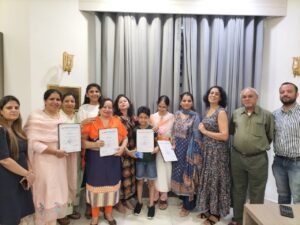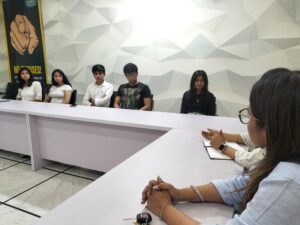In today’s society, the responsibility of raising a son goes far beyond providing for his basic needs or ensuring his academic success. As mothers, as social figures, and as sociologists, we must impart the values of respect and dignity, particularly towards women. We can no longer afford to hide behind the excuse that “boys will be boys” or allow them to indulge without boundaries. When we do, we neglect a fundamental duty in raising our sons—a duty that, if unfulfilled, leads to a collective failure as a society.
The recent harrowing events in Kolkata have shaken my soul. The tragedy forced me to confront the deeper issues at play, to question what might have gone wrong, not just for the victim but within our entire societal framework. These thoughts have haunted me, compelling me to look beyond the immediate horror and seek out the root causes of such incidents.
The victim, a young girl, reached out to me in spirit, guiding my hand to write the following lines—an expression of the pain, the struggle, and the injustice that so many girls face in a society that fails to protect them.
Is it a sin to be born a girl
In this machoistic society?
You worship me twice
Every year on Navratri.
You see me as a manifestation of a devi,
Put me on a pedestal,
And ask others for emulation.
But, you are reluctant initially
To have me in your world.
Once I am born,
Overriding your wish for a boy,
You console yourself by saying
That you have been blessed by Laxmi.
You are reluctant to give me food
When you have to feed my brother,
But I don’t mind, for he is not just your son
But my brother too.
I love you, your home, and your courtyard,
But you keep telling me
That I am “Paraya Dhan.”
You dream of making me a doctor,
Knowing I am destined
To alleviate the misery and suffering
Of the teeming, hapless millions.
And yet, when you must persuade
This moribund society to educate a girl child,
You add the caveat that
I can only be saved if I am educated.
Are you really sure
That my innate and natural instinct
To serve suffering humanity
Is my ticket to survival?
You are wrong in your assessment.
Had it been so, I would not have been
Mutilated, raped, and encroached upon
In those dark corridors of my own hospital.
You raised my brother to be a breadwinner,
To be a custodian of family and society.
But you forgot to teach him
That he is to respect and love
All the sisters and daughters
The way he loves me.
You kept on thumping your chest,
Gorilla-like, to claim your tribe,
But you forgot that this chest-thumping
Sends the wrong message to your sons.
This chest-thumping makes
A Hathras or a Kolkata possible.
Yes, it is a sin to be born a girl
In your society, which has
Failed to teach its sons
That a girl is a true devi—
Not just to be worshipped, idolized, or emulated.
You have taught him
That she is not a person
But a thing to be lusted after
And to be enjoyed.
Forgive me this temerity, O Babul,
For I shall never be born
To play in your courtyard again.
A Call to Reflect and Act
This poem is not just an outpouring of emotion—it is a call to action. It challenges us to reflect on our societal values and the messages we impart to our children. The notion that “boys will be boys” is an outdated and harmful mindset that perpetuates the very violence we seek to eliminate. As parents and as a society, we must teach our sons to respect womanhood, to see girls and women not as objects, but as equals deserving of dignity and respect.
This is not just about raising better sons; it is about creating a better society—one where incidents like those in Kolkata never occur again, where girls can grow up free from fear, and where every child, regardless of gender, is nurtured, loved, and valued for who they are.
Let this be a collective resolution to change, to do better, and to ensure that the next generation learns the true meaning of respect and humanity.
Conclusion
The change we seek begins at home. It starts with the lessons we teach our sons and the examples we set as parents and as members of society. Let us all take a stand—together, we can make a difference.

Public figure
Director – Aas Ehsaas (NGO for child & women welfare)
Founder – TEEOC (for women empowerment)
Joint Secretary (Youth) – AAP Community Influencer





